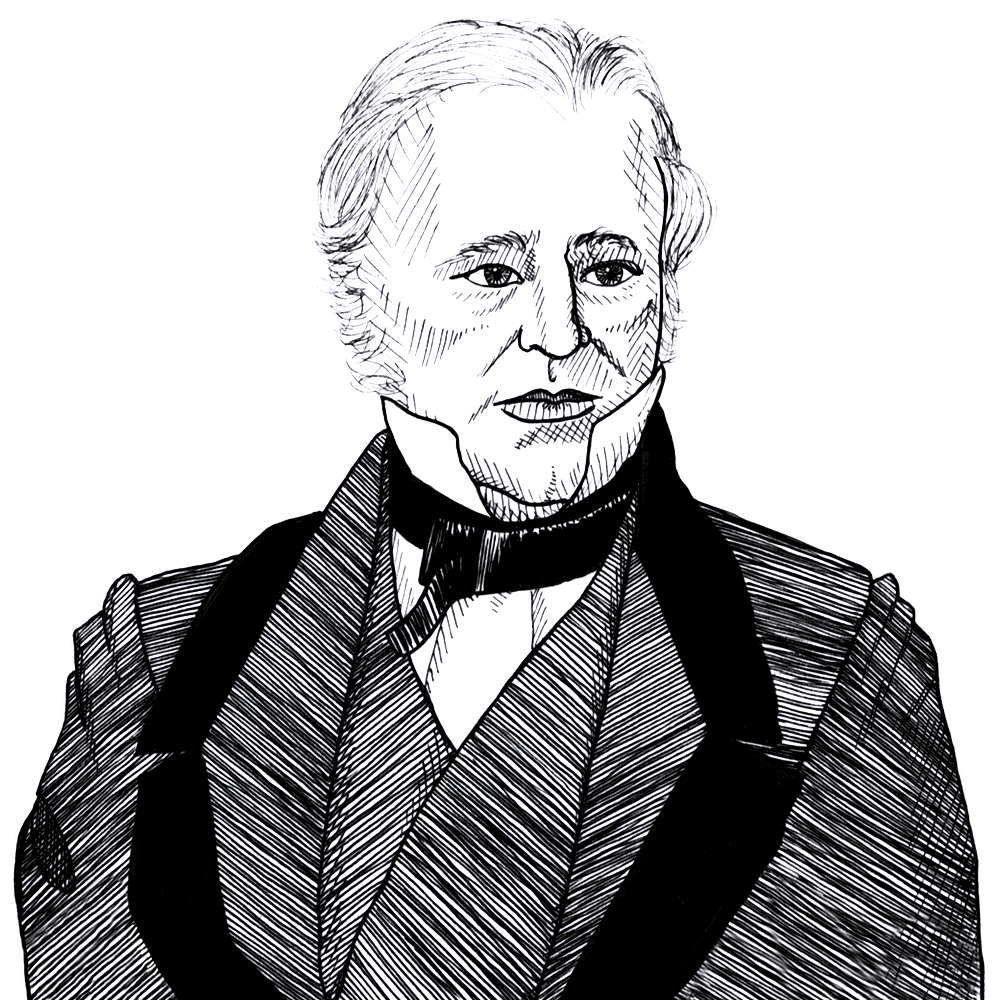
Macaulay wittily denounces a tyrannical priest as being an intermediate grub between sycophant and oppressor (1837)
Found in: Critical and Historical Essays, Vol. 2
In a review of a biography about the 17th century philosopher of science Lord Bacon (1561-1626) Lord Macaulay (1800-1859) has some sharp words to say about the tyrannical master of Bacon’s college at Cambridge:
Rhetoric of Liberty
In the thirteenth year of his age he (Francis Bacon) was entered at Trinity College, Cambridge. That celebrated school of learning enjoyed the peculiar favour of the Lord Treasurer and the Lord Keeper, and acknowledged the advantages which it derived from their patronage in a public letter which bears date just a month after the admission of Francis Bacon. The master was Whitgift, afterwards Archbishop of Canterbury, a narrow-minded, mean, and tyrannical priest, who gained power by servility and adulation, and employed it in persecuting both those who agreed with Calvin about Church Government, and those who differed from Calvin touching the doctrine of Reprobation. He was now in a chrysalis state, putting off the worm and putting on the dragon-fly, a kind of intermediate grub between sycophant and oppressor. He was indemnifying himself for the court which he found it expedient to pay to the Ministers by exercising much petty tyranny within his own college.